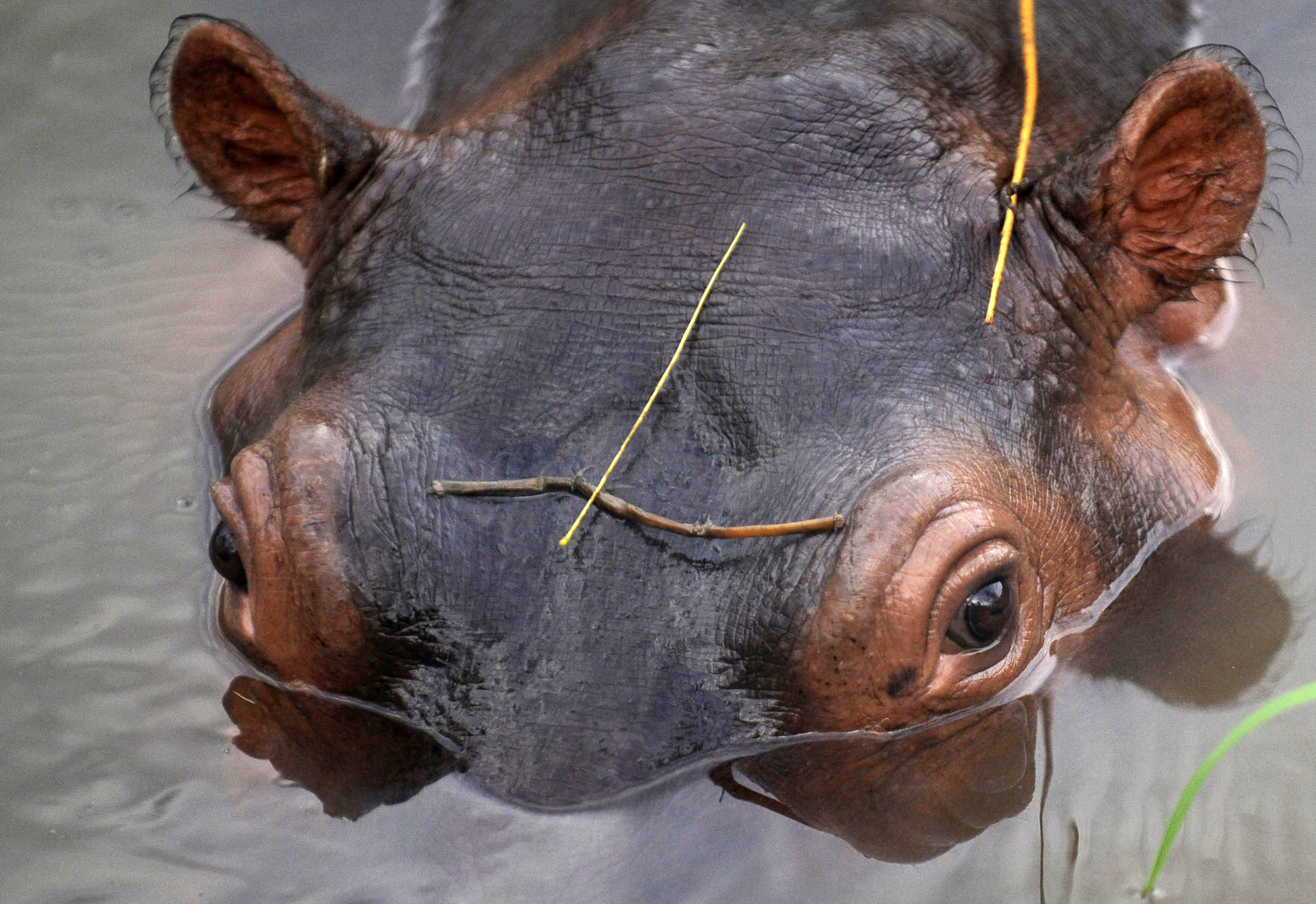Colombia might have had enough of Pablo Escobar’s ‘Cocaine Hippos’
A previous attempt to cull the hungry hippos ended after public outcry

Sex, drugs and hippopotami have made Pablo Escobar’s Hacienda Napoles a massive tourist attraction in Colombia. But after the 20 years of 4000-pound orgies and toxic poop, the exploding population of the infamous “Cocaine Hippos“ may have outstayed their welcome.
A new VICE World News documentary dived into the battle between scientists who want to cull the massive beasts before the local environment is destroyed and the locals who rely on the tourism they generate to maintain their livelihoods.
Tensions between the competing interests flared after a research paper released in January found an urgent need to limit their population growth. The number of hippos grew from 35 in 2012 up to 80 in 2020, with sterilization efforts having little impact.
The aquatic "invasion" started with one male and three female hippos smuggled by Escobar into Colombia from a US zoo in the 1980s. After his death and the collapse of his cocaine empire, the hippos remained in a pond at Hacienda Nápoles before their feral offspring began the Magdalena wetlands.
What’s so bad about a few hungry hippos? Their pee is toxic, their poop leads to algae blooms that kill local fish, and
"The real problem with hippos is their uncontrollable reproduction. Being such a territorial species, it offers a lot of danger for the fishing population and other people who live in this area," government environmental researcher, David Echeverri-Lopez, told VICE.
Researchers estimate about 1,500 of the big mouths by 2040 if the endless summer of love continues unabated for the next 20 years.
A previous culling attempt was cancelled due to public outcry at the first killing, but researchers believe the level of environmental destruction and their seemingly insatiable desire to make babies means it may be time to again try thinning the herd.
"Our findings show the urgent need of taking critical management decisions by the Colombian authorities, which should be focused on limiting the hippos’ population growth and expansion," researchers said.
"However, the proposal of a course of action can become controversial when the species has a charismatic value for the society, regardless of its ecological or social impact."
Join our commenting forum
Join thought-provoking conversations, follow other Independent readers and see their replies
Comments
Bookmark popover
Removed from bookmarks